San Antonio Water Systems
Clean, better-tasting water makes every day easier. PlumbSmart helps San Antonio homeowners improve water with filtration and softeners that cut odors, minerals, and scale. We explain options clearly and install systems that fit your home and budget.
Schedule today. We’re here 24/7!
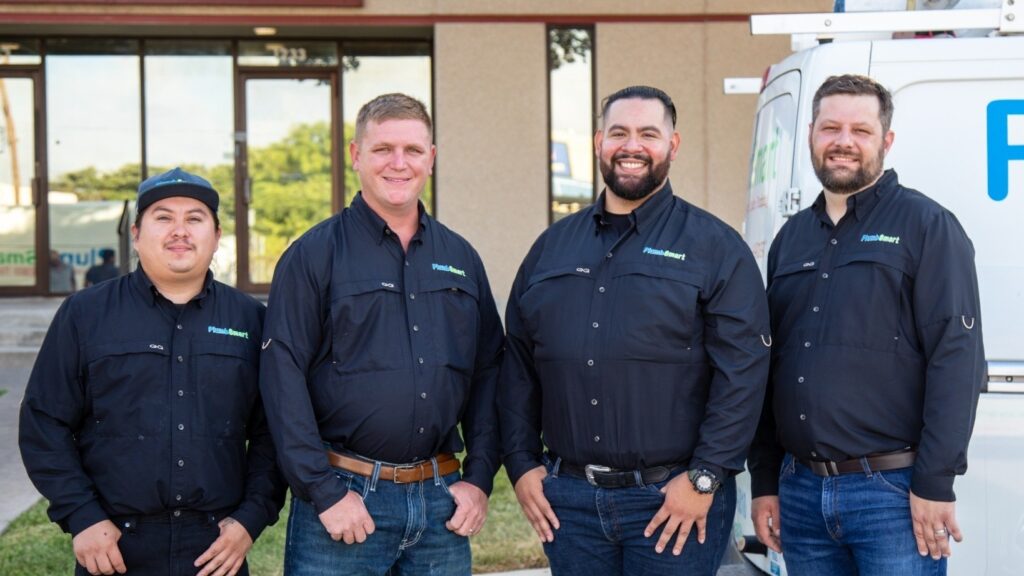
Our Sewer Services in San Antonio
Water Filtration Systems
Clean, great-tasting water should be easy. We install whole-home water filtration in San Antonio to reduce chlorine, odors, and common sediment. We size the system for your home, explain filter changes, and make sure your taps deliver clear water for cooking, drinking, and showers daily.
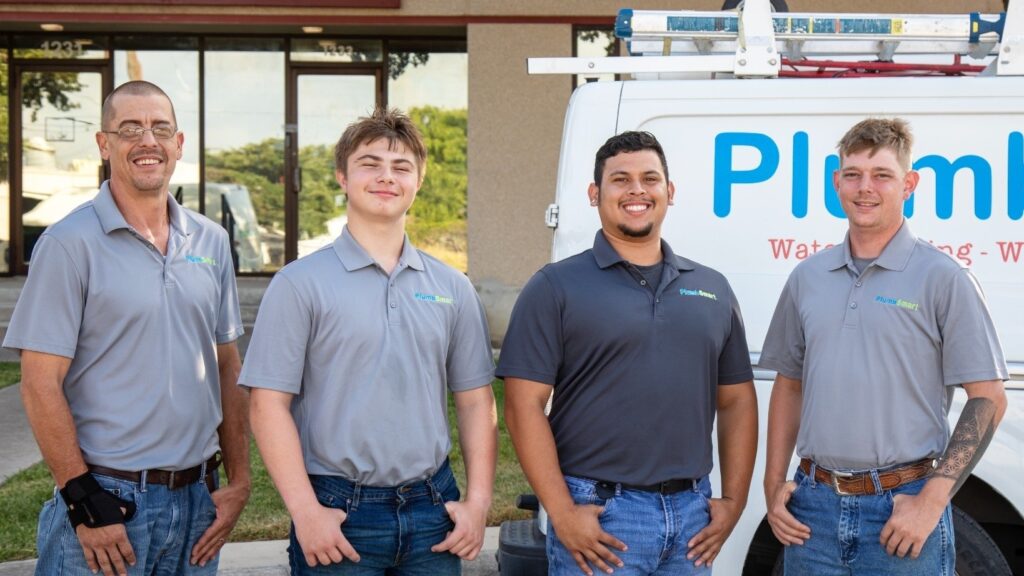
Water Softener Services
Hard water leaves spots on dishes, dries out skin, and builds scale inside pipes. PlumbSmart installs and services water softeners in San Antonio to help reduce mineral buildup. We test your water, recommend the right size, and set it up so your whole home feels cleaner and runs smoother.
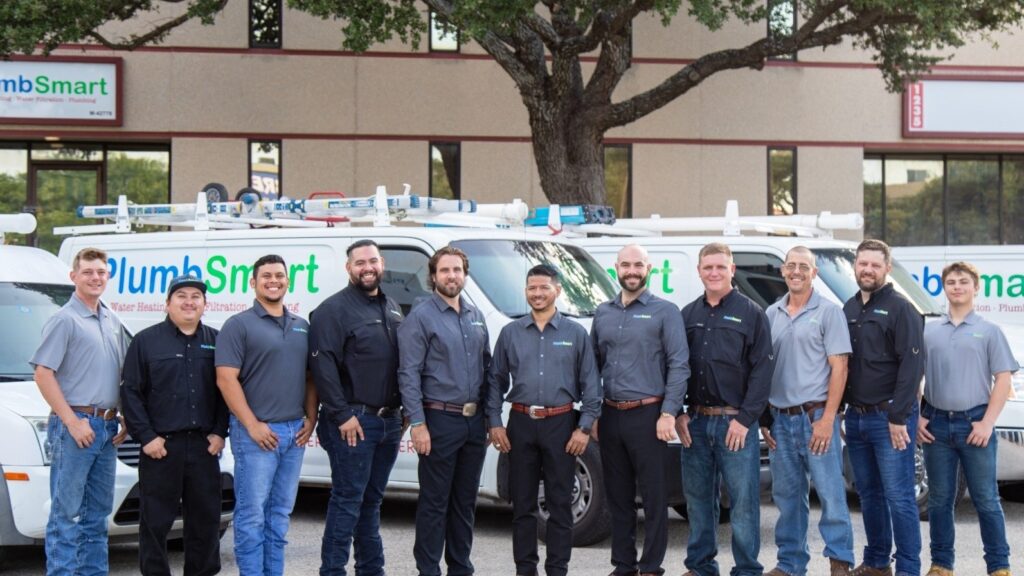
Water Softener Repair
If your softener is leaking, making salty water, or not using salt, it is time for a checkup. Our San Antonio plumbers troubleshoot valves, brine tanks, and control heads, then repair what is needed. We also clean lines and confirm you are getting soft water again.
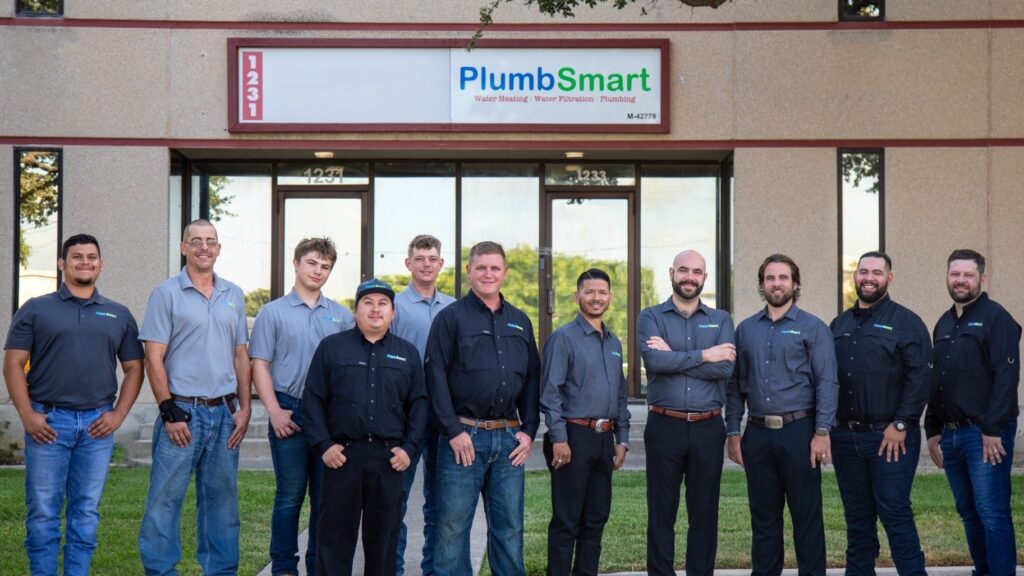
Water Softener Installation
Installing a softener the right way protects your plumbing and prevents messy leaks. We handle San Antonio water softener installation from start to finish, including shutoff valves, drain routing, and safe settings. After setup, we show you how to add salt and keep it running.
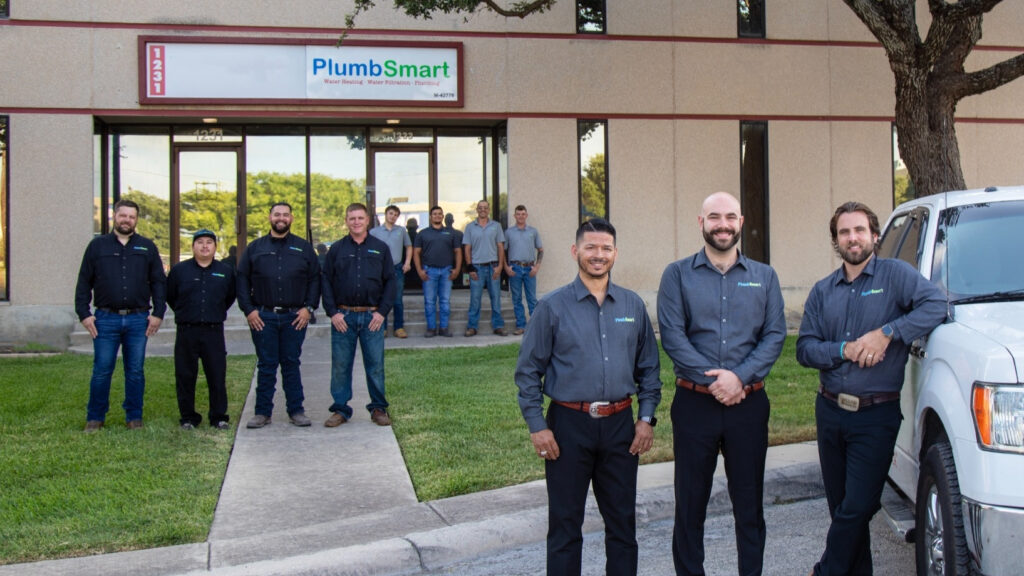
Book an appointment or a free evaluation
Did you know that approximately 9-13% of our service calls are to come out to fix other companies mistakes?
San Antonio Sewer Specialists
San Antonio’s hard water can be rough on homes, from the North Side to the South Side. PlumbSmart helps local families improve water quality with filtration and softening that fits their needs. When you want better water, we show up on time and do clean work.
- Alamo Heights
- Boerne
- Converse
- Balcones Heights
- Hedwig
- Castle Hills
- China Grove
- Cross Mountain
- Elmendorf
- San Marcos
- Helotes
- Seguin
- Buda
- Live Oak
- Leon Valley
- Sandy Oaks
- Selma
- Kyle
What your San Antonio neighbors have to say
EXCELLENTTrustindex verifies that the original source of the review is Google. Paul did a great job diagnosing my water heater issuesPosted onTrustindex verifies that the original source of the review is Google. Fourth time using this company. Still the best customer service I’ve ever received. Edward is a great technicianPosted onTrustindex verifies that the original source of the review is Google. Master plumber Chris Garza did an outstanding job finding our leak and repairing it immediately. He was professional, efficient, and the cost was very reasonable. We couldn’t be happier with the service and highly recommend him.Posted onTrustindex verifies that the original source of the review is Google. Joey came by today to check on our fire place because we were concerned about a gas leak. From the start, this experience was great. It was easy to submit a booking request and the scheduler called a few hours afterward to set the time. They had an appointment available the very same day, which was great. I love how they sent info ahead regarding who the tech was. Joey called me before hand to say he could come by sooner if we wanted. He was professional, straight to the point, and put our minds at ease. I will definitely give these guys a call for any future plumbing issues we run into.Posted onTrustindex verifies that the original source of the review is Google. Our technician was very professional and talked me through everything he was going to do to fix our water softener. He rocked!Posted onTrustindex verifies that the original source of the review is Google. Outstanding service in every way. I got a next-day appointment, the technician (Paul) was on time and fixed the problem (stopped up drain) in less than 30 minutes. He was very professional and thorough in explaining and fixing the problem. He also explained various service options they provide for ongoing preventative maintenance.Posted onTrustindex verifies that the original source of the review is Google. Install a recirculating pump. Joey did outstanding work. Good price. Only problem is Plumsmart management sent Jorge the day before for the quote. They replaced Jorge with Joey which I am ok with. Just needed to be notified of the change. After the service was completed they sent me a review on Jorge, not Joey who did the work. No recipe either for work perform.Posted onTrustindex verifies that the original source of the review is Google. Joey was very helpful and kind, he took the time to explain, was very professional. Thank you for your good service, and appreciate the discount on first time use, really came in handy. Thank you.
What to expect with our services
When you call, we’ll ask what you’re noticing, where the problem shows up, and how long it’s been happening. We may ask for a photo of the setup. Then we schedule an appointment window and send updates so you know when we’re on the way.
We respect your home in San Antonio by using shoe covers and protective mats, and by keeping our workspace tidy. We test the water, inspect your plumbing, and confirm what the system needs. Then we explain the findings in plain language and give options so you can choose.
We clean up, review what was done, and answer any last questions. If we installed a filter or softener, we show you how to use it and when to change media or add salt. You get simple next steps and a home left tidy.
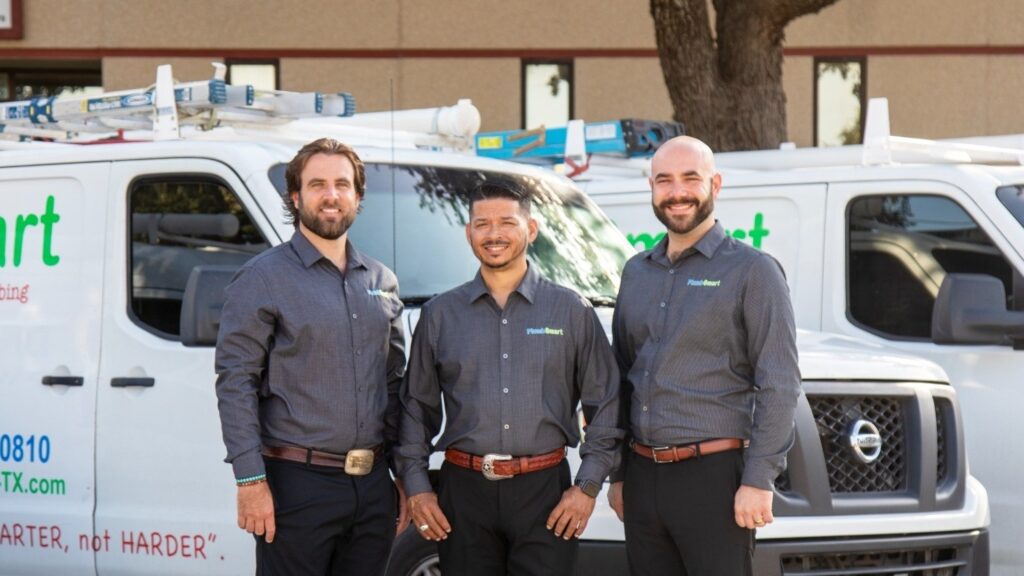
24/7 Emergency Plumbing
Plumbing disasters don’t wait for business hours. Our expert team is ready to roll at a moment’s notice, day or night, to handle your emergencies.
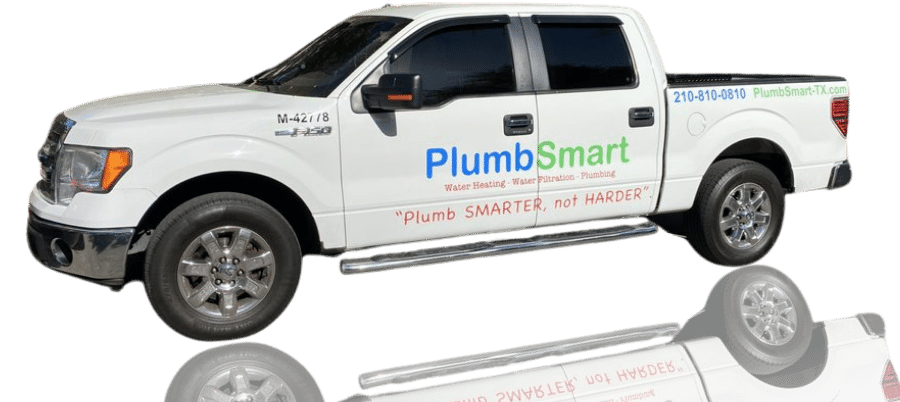
FAQs
Do I need a water softener in San Antonio?
Many San Antonio homes have hard water, which means extra minerals. Those minerals cause scale in pipes, spots on dishes, and shorter appliance life. A softener removes hardness so water feels better, soaps rinse cleaner, and your plumbing stays in better shape.
What is the difference between filtration and softening?
Filtration targets things like chlorine taste, odors, rust, and sediment. Water softening targets hardness minerals like calcium and magnesium. Many San Antonio homes use both: a filter for cleaner taste and a softener to prevent scale and reduce spots on fixtures.
How often should I service my water softener?
A quick check once a year helps catch small issues early. We look at salt use, settings, resin performance, and any leaks. If your water feels hard again or you see new spots, schedule service sooner. Regular care keeps your San Antonio system reliable.
Can a whole-home filter improve shower water quality?
Yes. A whole-home water filtration system can reduce chlorine and sediment before water reaches your bathroom. That often means less smell, fewer skin and hair issues, and cleaner fixtures. We can test your San Antonio water and recommend the right type of filter.
Can a water filter and softener work together?
Yes. A filter and softener often make a strong team. Filtration can improve taste and reduce sediment, while a softener reduces minerals that cause scale. In many San Antonio homes, the filter goes first to protect the softener and keep the system efficient.
Book an appointment or a free evaluation
Did you know that approximately 9-13% of our service calls are to come out to fix other companies mistakes?
Latest Blog Posts
Discover our latest insights and updates on various topics.
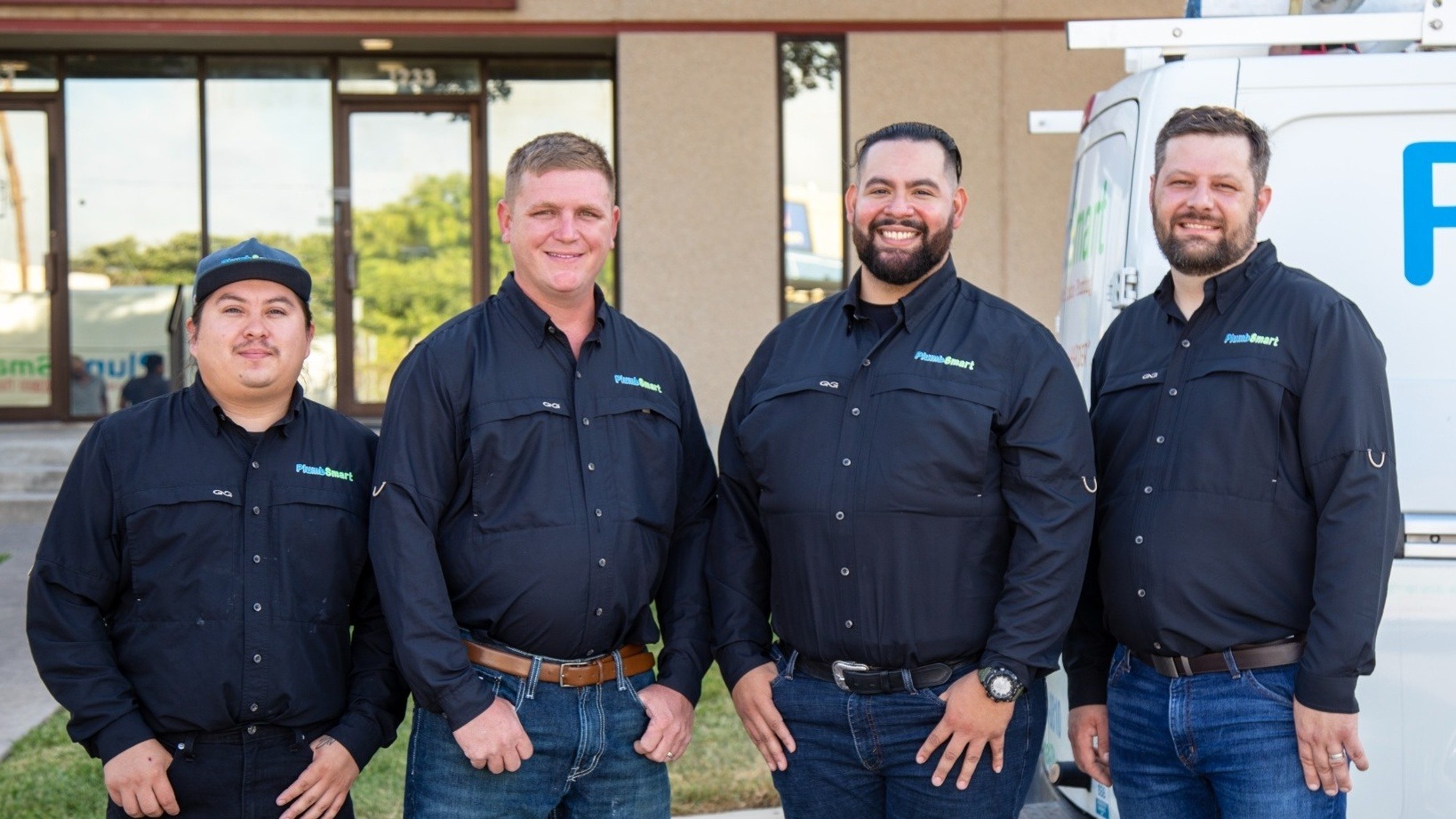
How to Shut Off Water to Your House (Find the Main Shut-Off Valve Fast)
When a small leak turns into a big mess Most water damage starts with something dumb and small: a toilet
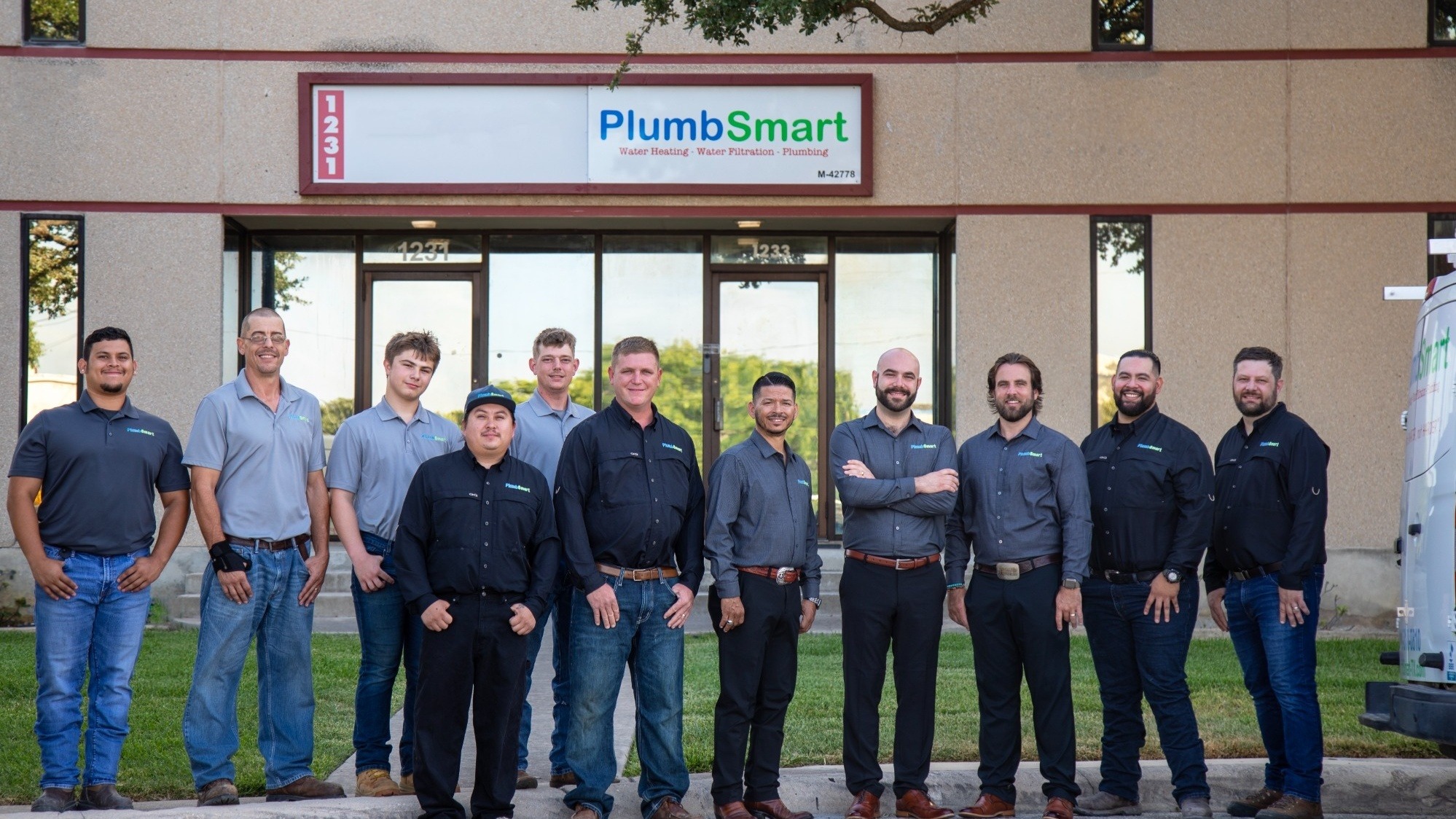
What Is Hydro Jetting? A Practical Guide for San Antonio Homeowners (PlumbSmart)
If you’re searching “what is hydro jetting”, you’re probably dealing with a drain problem that keeps coming back—or you’re trying
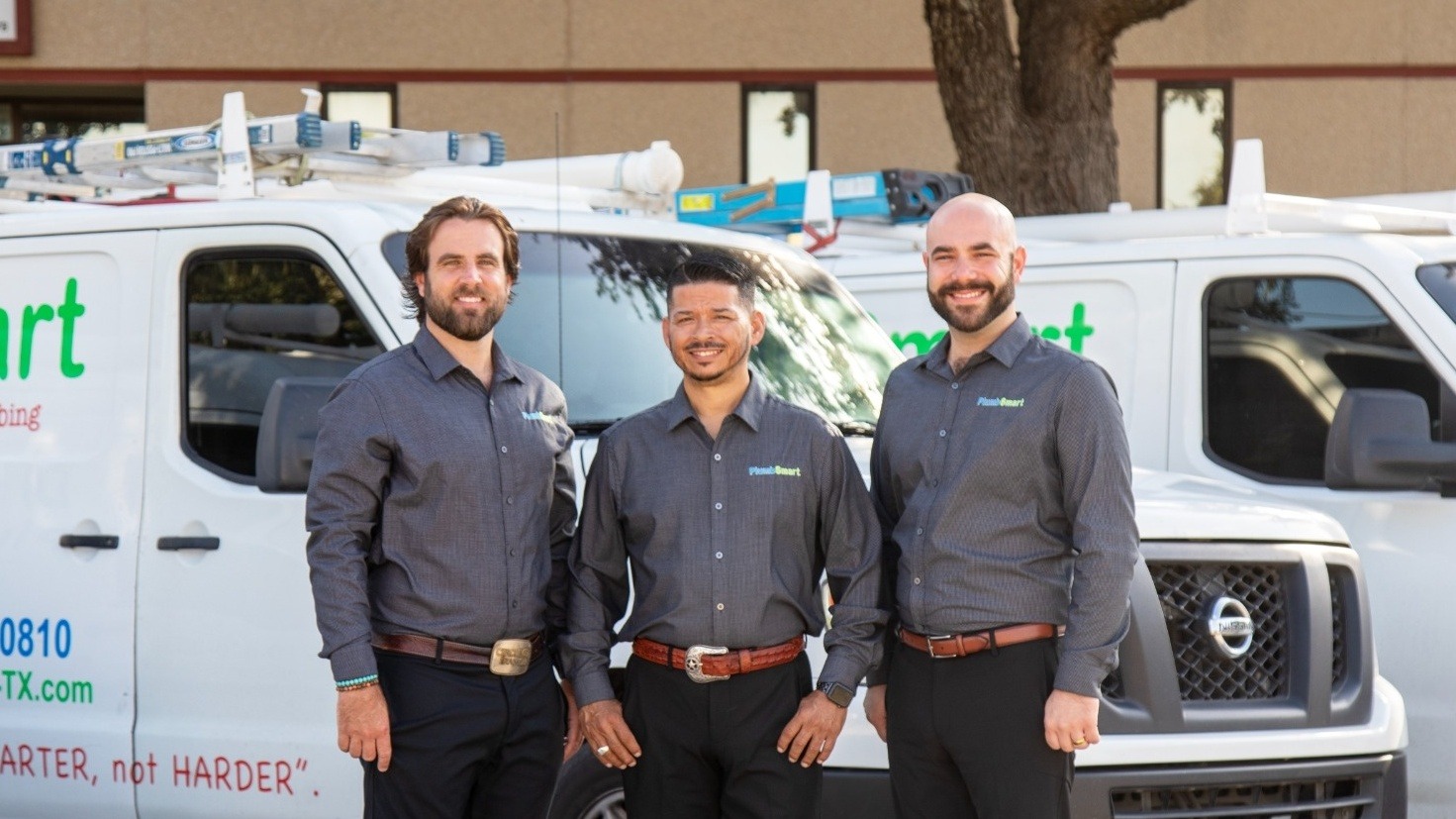
Should I get a plumbing inspection when buying a house?
The small plumbing issue that can ruin move-in week Most homebuyers picture the “big” stuff: roof, foundation, HVAC. But the
PlumbSmart — San Antonio
You can call us for assistance 24 hours, 7 days a week.
San Antonio is a fast-growing city where families expect dependable water at home. But local water is often hard, which means extra minerals that can leave spots on dishes, dry out skin, and build scale inside pipes and water heaters. Add hot summers, occasional freezes, and older plumbing in some neighborhoods, and small water issues can turn into bigger headaches.
PlumbSmart is based here in San Antonio, so we understand what local water does to homes. Our team helps with water filtration and softeners, and we keep explanations simple so you can make the right choice.
Whether you’re adding a new water filter, upgrading to a stronger softener, or improving a current setup, we can help. After working in San Antonio homes for years, we recommend solutions that fit your water, protect plumbing, and reduce wasted water from scale-related problems.
Water systems work best when they’re checked and cared for, not just installed and forgotten. Regular service can catch small issues like clogged filters, low salt, worn valves, or slow leaks before they cause damage. During a visit, we can test water quality, confirm settings, clean key parts, and make sure the system matches your current household needs. That keeps your San Antonio home’s water running clean and consistent.
